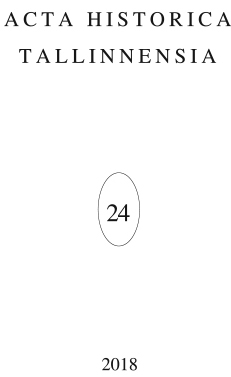RAHVUSVAHELISE TÖÖORGANISATSIOONI
OSA EESTI PÕLLUMAJANDUSTÖÖLISTE TÖÖTINGIMUSTE REGULEERIMISES
KAHE MAAILMASÕJA VAHEL
THE EFFECT OF THE INTERNATIONAL LABOUR STANDARDS IN AGRICULTURE ON THE REGULATION OF WORKING CONDITIONS OF ESTONIAN RURAL WORKERS
BETWEEN THE WORLD WARS
Author(s): Maie PihlamägiSubject(s): History, Law, Constitution, Jurisprudence, Agriculture, Economic history, Labor relations
Published by: Teaduste Akadeemia Kirjastus
Summary/Abstract: This article deals with the ILO standards in agriculture and analyses their effect on Estonian legislative and social policy for improving the working conditions of Estonian rural workers. The ILO standards developed between the world wars covered mainly industrial workers, whereas there were few conventions on the working conditions in other areas (agriculture, maritime industry). Only seven conventions concerning the agricultural workers (protection of child labour, the right of association, social security) were adopted by ILO labour conferences between the two world wars. Despite the fact that these conventions made up a small proportion (10%) of the total number of ILO conventions (67) and their ratification rate was more than modest, they had a direct impact on government social policies of the Member States, including Estonia, although it ratified out of seven only three conventions in agriculture. The decisions to ratify the conventions on the protection of child labour, the right of association and occupational accident insurance were influenced by the fact that the provisions of these conventions were largely dealt with in Estonian national legislation. On the other hand, being a newcomer among the ILO Member States Estonia tried to fulfil keenly its membership obligations.
Journal: Acta Historica Tallinnensia
- Issue Year: 2018
- Issue No: 24
- Page Range: 109-132
- Page Count: 24
- Language: Estonian

